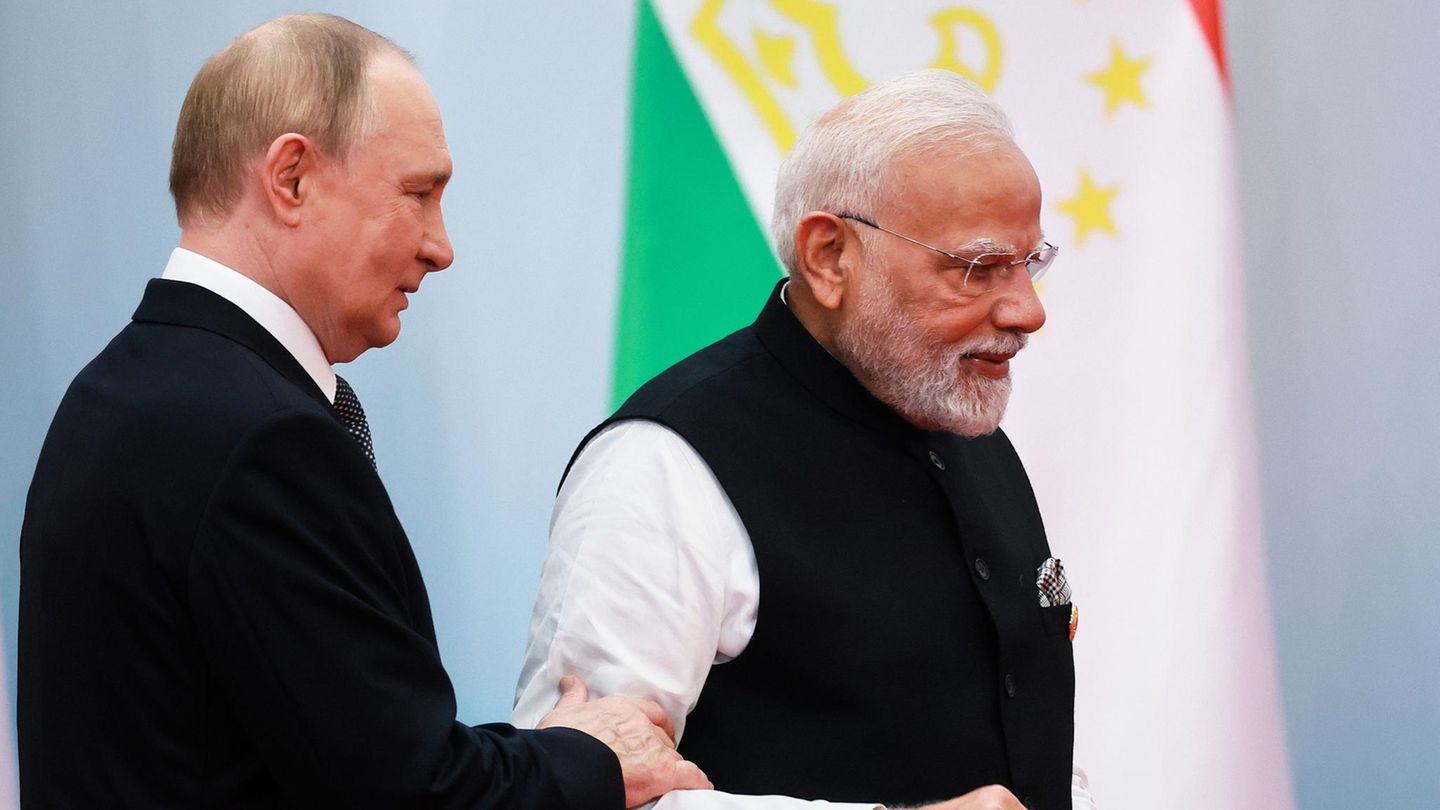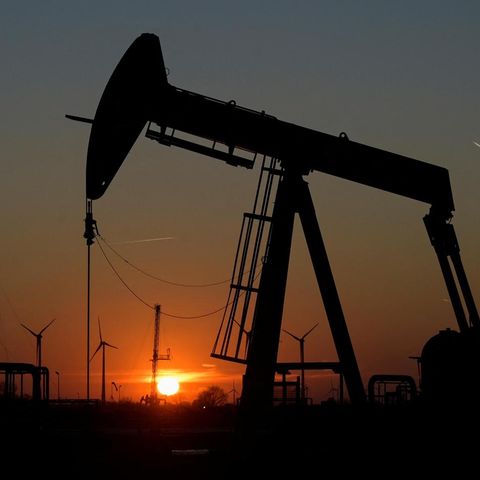Energy relationships
Why one of Russia’s most important oil customers could bail out
Copy the current link
Add to watchlist
India is Russia’s most loyal oil customer after China. The government in New Delhi now wants to cut off this economic relationship – and is thus giving in to pressure from the White House.
According to US President Donald Trump, India has assured New Delhi that it will stop buying Russian oil. Indian Prime Minister Narendra Modi “has assured me that no oil will be purchased from Russia,” Trump told reporters at the White House on Wednesday. India did not confirm a possible change of course on Thursday, but also did not reject the information. China condemned the US’s push to turn away from Russian oil as “unilateral harassment.”
Trump further said of India’s announced plans to stop purchases: “You can’t do that right away. It’s a bit of a process, but the process will be over soon.”
India: “Interest in energy cooperation”
An Indian Foreign Ministry spokesperson said it has always been India’s “priority” to “ensure the interests of the Indian consumer in a volatile energy scenario.” “Our import policy will be fully aligned with this objective,” he added.
“As far as the United States is concerned, we have been trying to expand our energy procurement for many years,” the spokesman continued. There has been steady progress over the last decade, and the current US administration has “shown interest in deepening energy cooperation with India,” he continued. “The discussions are ongoing.”
Washington had accused the Indian government of being a “source of money for the Russian war machine” through its purchase of Russian oil. Since the end of August, US import duties of 50 percent have been due on imports from India.
Donald Trump is putting pressure on Asian countries
India is one of the largest importers of crude oil in the world. The country traditionally bought in the Middle East, but since the Russian attack on Ukraine at the beginning of 2022, the share of Russian oil in Indian imports has increased from two to almost 36 percent last year. For New Delhi, this is less a political decision than a pragmatic one: the Gulf states produce primarily for Europe, which in turn hardly buys from Russia anymore – Moscow remains a cheap supplier for India.
Modi recently appeared interested in improving relations with the US when he met the new US ambassador to India, Trump ally Sergio Gor, on Saturday just hours after his arrival in New Delhi. Gor said after meeting Modi that the US government values relations with India.
Trump also spoke about his relationship with Modi at the White House. The Indian prime minister is “a great man,” said the US president, adding: “He loves Trump.” He doesn’t want to destroy Modi’s political career. “I have been watching India for years. It is an incredible country and every year there has been a new leader.” His “friend” Modi has been at the helm of India for a long time now.
China is Russia’s largest oil customer, ahead of India. In addition to New Delhi, Trump also accused Beijing of financing the war in Ukraine through oil purchases. He also demanded that European allies immediately stop buying oil from Russia.
In this context, the Chinese Foreign Ministry on Thursday defended its “normal, legitimate economic, trade and energy cooperation with countries around the world, including Russia.” The US action is a “typical example of one-sided harassment and economic coercion,” said ministry spokesman Lin Jian.
After Trump took office in January, tensions between the US and China rose sharply. Countries imposed tariffs and trade restrictions on each other. The situation eased again in early summer, an agreement was negotiated and tariffs were reduced in the meantime. But for a few days now the signs have been pointing to a storm again.
AFP
cl
Source: Stern
I have been working in the news industry for over 6 years, first as a reporter and now as an editor. I have covered politics extensively, and my work has appeared in major newspapers and online news outlets around the world. In addition to my writing, I also contribute regularly to 24 Hours World.





